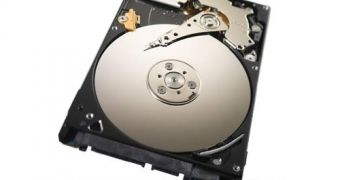They are at it again: makers of hard disk drive units are busy saying how NAND Flash memory couldn't possibly replace magnetic drives. Ever.
To Seagatet's credit, CEO Steven Luczo does, at the very least, admit that NAND can be a good complimentary technology (we think he meant complementary, but just in case this isn't a misspelling, we'll call it that).
He doesn't think that solid state drives, or any other Flash-based storage solution, will ever actually replace HDDs though.
His argument is that NAND is limited in terms of supply, especially with capacity needs growing.
It also doesn't help that semiconductor manufacturing plants are really expensive compared to magnetic media facilities.
"If you are trying to grow exabytes, what’s the capital investment to grow exabytes? For flash, it is $10 billion at a chunk, which is what it takes to build a new chip fab. For drives, it is a fraction of that," the CEO said.
"If the industry had to grow from 400 to 500 exabytes, we would do that on $1 billion of capital. [...] [To get to a zettabyte, we need] about $1 billion a year for us, and then about $1 billion a year for WD. Versus $50 billion [for NAND flash makers]."
NAND will probably continue to grow popular amount laptops, tablets and mobile devices in general, but larger systems won't go beyond the hybrid stage.
That is to say, some NAND Flash may be used for caching purposes / increasing speed, but HDDs will continue to provide the bulk of the storage space.
"Flash is a complimentary technology, it is not a competitive technology. [...] Our industry shipped 100 exabytes of data five years ago, 400 exabytes in 2011, and we will probably ship a zettabyte sometime between 2015 and 2016," the CEO said.
"A zettabyte is equal to all the data that has been digitized from 1957 through 2010. [...] We are going to ship that in one year. So whatever the architecture is, pads, phones, notebooks, ultrabooks, real notebooks, PCs, servers, clouds, one year, a zettabyte – that is all going to be on rotating mass storage," said Steven Luczo, in an interview with Forbes web-site."

 14 DAY TRIAL //
14 DAY TRIAL //